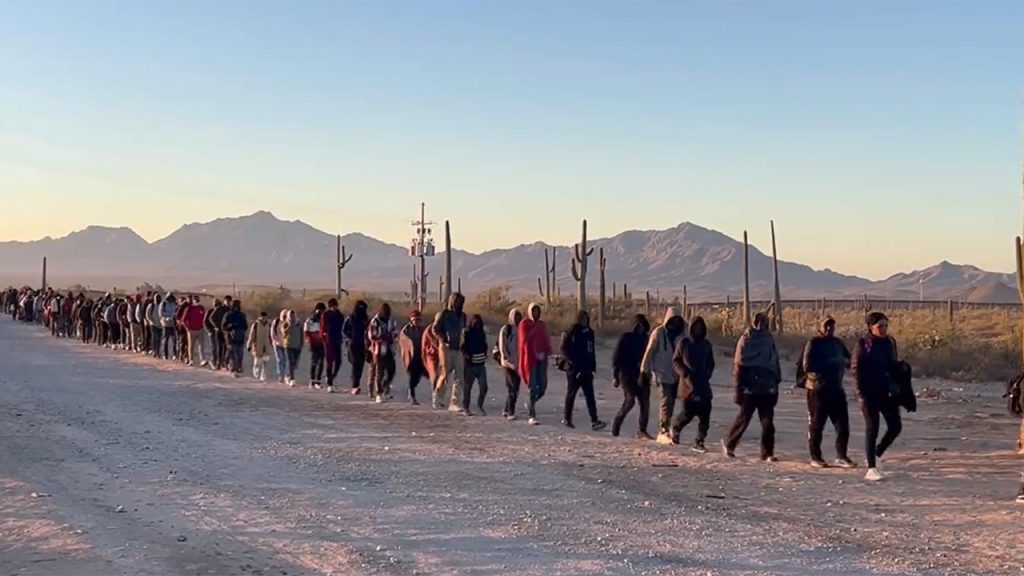The vote on a controversial Arizona border security bill, known as HCR 2060 or the Secure the Border Act, was delayed after Republican State Sen. Ken Bennett raised concerns about the language of the bill. Modeled after Texas’ SB 4, the Arizona bill aims to give local law enforcement the tools to enforce federal border security laws and make it a crime to illegally cross the border. Bennett’s objections focused on language regarding recipients of the Deferred Action for Childhood Arrivals (DACA) program, with concerns that the bill could potentially change the legal status of DACA recipients if the program was canceled.
Bennett’s vote on the bill is critical due to the narrow majority held by the Republican-led state senate, which cannot afford any defections because of universal Democratic opposition to the legislation. The absence of Republican State Sen. Justine Wadsack, who was dealing with a family emergency in California, further complicated the passing of the bill. Arizona’s Democratic Governor Katie Hobbs has also voiced opposition to the bill, arguing that it would not effectively secure the border and would be harmful to businesses, communities, and law enforcement personnel in the state.
In response to Governor Hobbs’ previous veto of a similar piece of legislation in March, Republican lawmakers in Arizona are now looking to pass a new version of the bill that would appear on the ballot of Arizona voters in November. Senate President Warren Petersen expressed optimism that the legislation would ultimately pass, stating that Bennett’s concerns had been addressed and that Wadsack would be able to return in time for a vote the following week. Petersen clarified that DACA recipients would be exempt from the bill, addressing Bennett’s concerns.
Petersen argued that the bill was a valid solution to the state’s border security issues, emphasizing that it was specifically focused on border security rather than immigration. He pointed out the differences between the current legislation and the controversial 2010 Arizona law known as SB 1070, which had portions struck down by the Supreme Court in 2012. Despite the challenges and opposition faced by the Secure the Border Act in Arizona, Republican lawmakers remain determined to move forward with the bill in order to address the state’s border security concerns and potentially involve voters in the decision-making process.
Overall, the delayed vote on the Secure the Border Act in Arizona highlights the complex and contentious nature of border security legislation in the state. With objections raised by Republican lawmakers like Sen. Bennett and opposition from Democratic Governor Hobbs, the fate of the bill remains uncertain. However, Republican leaders like Senate President Petersen are optimistic about the bill’s chances of passing and believe it offers a viable solution to addressing border security challenges in Arizona without unnecessarily targeting immigrants. The ongoing debate over the bill underscores the deep political divide on immigration issues in the state and the importance of finding common ground to effectively address border security concerns.


